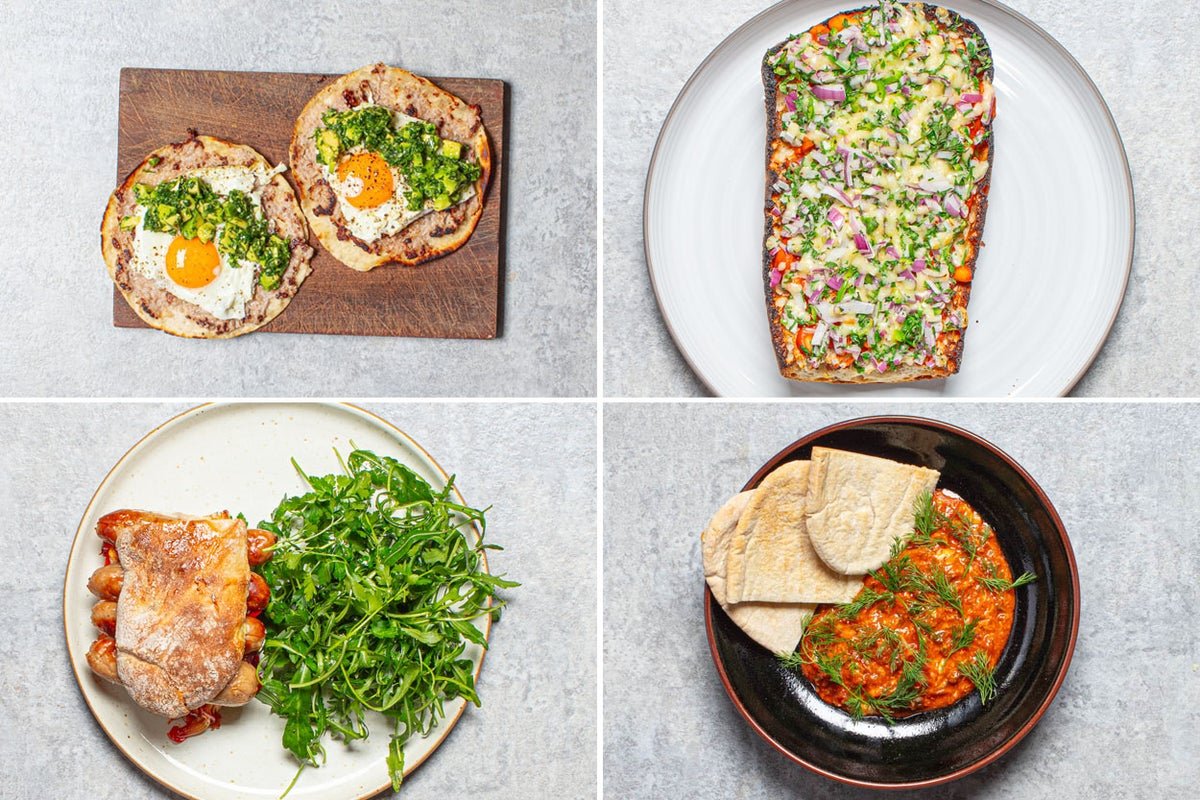As the modern lifestyle accelerates, people have started forgetting their traditional way of living and most importantly, the quality of life. Because of this the current lifestyle has started diminishing, and the data shows the rise of various diseases surrounding us. Look around, see the change and inherit the habits that may look beyond borders for wellness inspiration and some transformative changes in you and your wellbeing. A country which ranks among the healthiest nations has one of the highest life expectancies globally. And that is – Japan. Their everyday habits are way too simple, sustainable and deeply rooted in the cultural wisdom and several of which can be adopted to the Indian lifestyle.According to the ET reports, for a more balanced, mindful, and healthier life, one can choose these ten Japanese habits to have a better and happier life.
Japanese habits for healthier lifestyle
Smaller portions, greater benefits
“Mindful meals lead to mindful bodies”: Japanese meals are typically served in modest portions, focusing on balance and nutrition. A typical plate includes a small serving of rice, seasonal vegetables, lean proteins like fish, and fermented foods such as miso or pickles.This method not only prevents overeating but also promotes better digestion and metabolic health. Indians can replicate this by downsizing serving bowls and focusing on variety rather than quantity, with a renewed emphasis on wholesome ingredients.
The “80% full” rule: Hara Hachi Bu
A cultural approach to portion control: Originating from Okinawa, the philosophy of Hara Hachi Bu encourages individuals to eat only until they are 80% full. This simple principle reduces the chances of overindulgence and supports better long-term health by preventing obesity and related diseases.In India, where meals are often hearty and second helpings common, this practice offers a mindful counterbalance. By slowing down during meals and tuning into your body’s signals, you can foster healthier eating habits.
Movement as a natural part of daily life
Exercise without a gym membership: In Japan, walking, cycling, and even daily chores like gardening are seamlessly woven into everyday routines. This approach keeps people physically active without needing structured workout plans.India, too, has rich traditions of physical activity—be it yoga, classical dance, or simple household work. Reintroducing these into daily life, rather than relying solely on gym routines, can help maintain physical fitness organically.
Living with Ikigai: A Sense of Purpose
Emotional wellness through meaningful living: The Japanese concept of Ikigai, a reason for being, encourages individuals to find joy and meaning in their lives through work, hobbies, relationships, or community. Having a sense of purpose is directly linked to reduced stress, better mental health, and increased longevity. For Indians, reconnecting with personal passions, family values, or spiritual practices can offer similar emotional fulfillment and life satisfaction.
Rituals and nature for inner calm
Ancient practices that soothe the mind: From tea ceremonies to shinrin-yoku (forest bathing), the Japanese have long embraced rituals and nature as tools for stress relief and emotional balance. These slow, intentional practices encourage presence and peace.India’s own traditions—meditation, chanting, temple rituals, or time spent in natural surroundings—offer similar benefits. Practicing these regularly can significantly lower stress and improve overall wellbeing.
Rediscovering traditional foods
Healthy eating starts at home: In Japan, home-cooked meals using fresh, seasonal ingredients are a staple. Indians can similarly benefit by replacing processed snacks with traditional, nutrient-dense options such as sprouted lentils, roasted chana, or homemade chutneys and pickles.Reclaiming age-old food wisdom not only supports health but also strengthens cultural ties with heritage cooking methods.
Slow, intentional eating
Prevent lifestyle diseases one bite at a time: Japanese people are known for eating slowly, appreciating flavors, and rarely going back for seconds. This mindful eating habit helps regulate appetite and prevent overeating, contributing to lower rates of lifestyle-related illnesses like diabetes and heart disease.Indians can adopt this by creating distraction-free meal environments, chewing food thoroughly, and savoring every bite—turning each meal into a nourishing experience.
Fusing Indian and Japanese Wisdom
Two rich cultures, one holistic lifestyle: By blending India’s spiritual depth and culinary richness with Japan’s health-conscious lifestyle and simplicity, a powerful synergy can be created. Embracing practices from both cultures can pave the way for a longer, healthier, and more joyful life.From adjusting portion sizes to discovering your personal ikigai, the smallest changes can make a lasting difference.
Forest bathing (shinrin-yoku)
Our nature holds immersive restorative powers which can harness you and your healthy lifestyle. This Japanese practice of shinrin-yoku, or forest bathing where spending time in greenery, immersing yourself in the sights of sounds and scents of the forest has proven with more healthy benefits. This ultimately reduces stress, boosts one’s immune system and revitalises your body.
Prioritising sleep with ‘inemuri’
In the modern society known for hardwork, Japanese value sleep a lot, despite their busy schedules they embrace and follow the concept of inemuri or “being present while asleep.” This power nap mentality allows individuals to take short naps in public spaces without stigma. This practice rejuvenates the mind and body, boosting alertness and productivity.
var _mfq = window._mfq || [];
_mfq.push([“setVariable”, “toi_titan”, window.location.href]);
!(function(f, b, e, v, n, t, s) {
function loadFBEvents(isFBCampaignActive) {
if (!isFBCampaignActive) {
return;
}
(function(f, b, e, v, n, t, s) {
if (f.fbq) return;
n = f.fbq = function() {
n.callMethod ? n.callMethod(…arguments) : n.queue.push(arguments);
};
if (!f._fbq) f._fbq = n;
n.push = n;
n.loaded = !0;
n.version = ‘2.0’;
n.queue = [];
t = b.createElement(e);
t.async = !0;
t.defer = !0;
t.src = v;
s = b.getElementsByTagName(e)[0];
s.parentNode.insertBefore(t, s);
})(f, b, e, ‘https://connect.facebook.net/en_US/fbevents.js’, n, t, s);
fbq(‘init’, ‘593671331875494’);
fbq(‘track’, ‘PageView’);
};
function loadGtagEvents(isGoogleCampaignActive) {
if (!isGoogleCampaignActive) {
return;
}
var id = document.getElementById(‘toi-plus-google-campaign’);
if (id) {
return;
}
(function(f, b, e, v, n, t, s) {
t = b.createElement(e);
t.async = !0;
t.defer = !0;
t.src = v;
t.id = ‘toi-plus-google-campaign’;
s = b.getElementsByTagName(e)[0];
s.parentNode.insertBefore(t, s);
})(f, b, e, ‘https://www.googletagmanager.com/gtag/js?id=AW-877820074’, n, t, s);
};
function loadSurvicateJs(allowedSurvicateSections = []){
const section = window.location.pathname.split(‘/’)[1]
const isHomePageAllowed = window.location.pathname === ‘/’ && allowedSurvicateSections.includes(‘homepage’)
const ifAllowedOnAllPages = allowedSurvicateSections && allowedSurvicateSections.includes(‘all’);
if(allowedSurvicateSections.includes(section) || isHomePageAllowed || ifAllowedOnAllPages){
(function(w) {
function setAttributes() {
var prime_user_status = window.isPrime ? ‘paid’ : ‘free’ ;
var geoLocation = window?.geoinfo?.CountryCode ? window?.geoinfo?.CountryCode : ‘IN’ ;
w._sva.setVisitorTraits({
toi_user_subscription_status : prime_user_status,
toi_user_geolocation : geoLocation
});
}
if (w._sva && w._sva.setVisitorTraits) {
setAttributes();
} else {
w.addEventListener(“SurvicateReady”, setAttributes);
}
var s = document.createElement(‘script’);
s.src=”https://survey.survicate.com/workspaces/0be6ae9845d14a7c8ff08a7a00bd9b21/web_surveys.js”;
s.async = true;
var e = document.getElementsByTagName(‘script’)[0];
e.parentNode.insertBefore(s, e);
})(window);
}
}
window.TimesApps = window.TimesApps || {};
var TimesApps = window.TimesApps;
TimesApps.toiPlusEvents = function(config) {
var isConfigAvailable = “toiplus_site_settings” in f && “isFBCampaignActive” in f.toiplus_site_settings && “isGoogleCampaignActive” in f.toiplus_site_settings;
var isPrimeUser = window.isPrime;
var isPrimeUserLayout = window.isPrimeUserLayout;
if (isConfigAvailable && !isPrimeUser) {
loadGtagEvents(f.toiplus_site_settings.isGoogleCampaignActive);
loadFBEvents(f.toiplus_site_settings.isFBCampaignActive);
loadSurvicateJs(f.toiplus_site_settings.allowedSurvicateSections);
} else {
var JarvisUrl=”https://jarvis.indiatimes.com/v1/feeds/toi_plus/site_settings/643526e21443833f0c454615?db_env=published”;
window.getFromClient(JarvisUrl, function(config){
if (config) {
const allowedSectionSuricate = (isPrimeUserLayout) ? config?.allowedSurvicatePrimeSections : config?.allowedSurvicateSections
loadGtagEvents(config?.isGoogleCampaignActive);
loadFBEvents(config?.isFBCampaignActive);
loadSurvicateJs(allowedSectionSuricate);
}
})
}
};
})(
window,
document,
‘script’,
);
#Japanese #habits #Indians #embrace #today #healthier #happier #lifestyle #tomorrow



